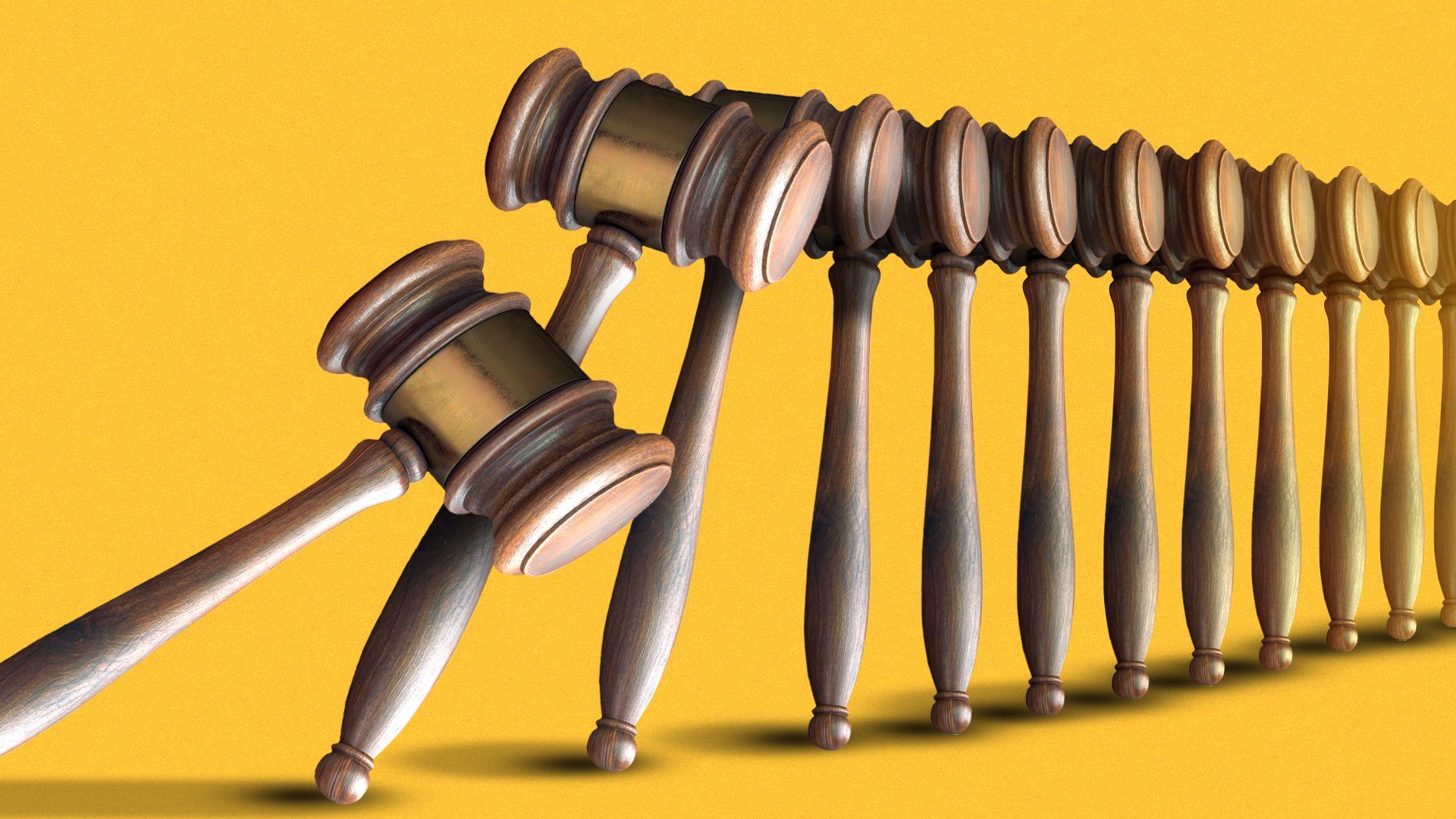Oct 4, 2022 - News
Two N.C. cases await the U.S. Supreme Court's ruling
Add Axios as your preferred source to
see more of our stories on Google.

Illustration: Annelise Capossela/Axios
The Supreme Court's new term is now underway, and two of the most high-profile cases on the docket stem from North Carolina.
Why it matters: No matter the outcome of those cases, the impact of the court's decision will reverberate far beyond our state.
- With a conservative 6-3 majority, the court may continue shifting rightward as it did in its last term, when justices struck down the right to abortion and limited the federal government's ability to curb greenhouse gas emissions.
- "On things that matter most," Irv Gornstein, the executive director of the Supreme Court Institute at Georgetown Law, told the New York Times, "get ready for a lot of 6-3s."
The bottom line: The North Carolina cases that have made their way up to the Supreme Court are among those that will matter most.
The first case, brought by an anti-affirmative action group, challenges race-conscious admissions at UNC-Chapel Hill and Harvard.
- Justices will hear arguments later this month on whether to continue allowing universities and colleges to consider race as a factor in admissions. In the UNC case, lower courts have sided with the school.
- Like it did in Dobbs v. Jackson Women's Health Organization, the court could overturn a longstanding precedent.
The second case could have a massive impact on federal elections.
- In Moore v. Harper, North Carolina's Republican legislative leaders are arguing that the U.S. Constitution gives state legislatures exclusive authority over elections.
- If the court rules in their favor, state legislatures across the country could have the final say in drawing congressional districts as well as implementing voting rules.
- That means state courts could not strike down political maps drawn by the legislature over gerrymandering, as it has numerous times in the last decade.
